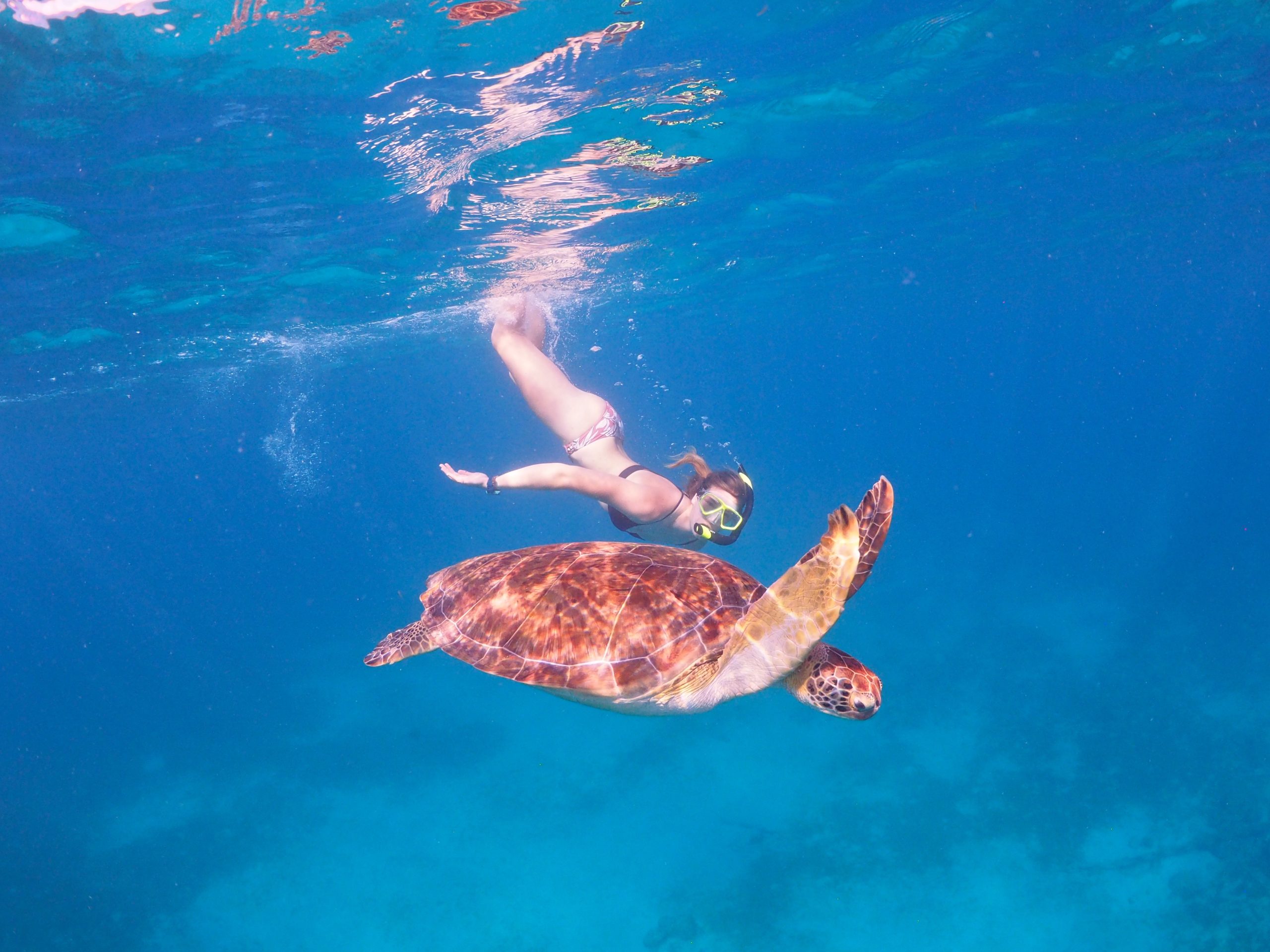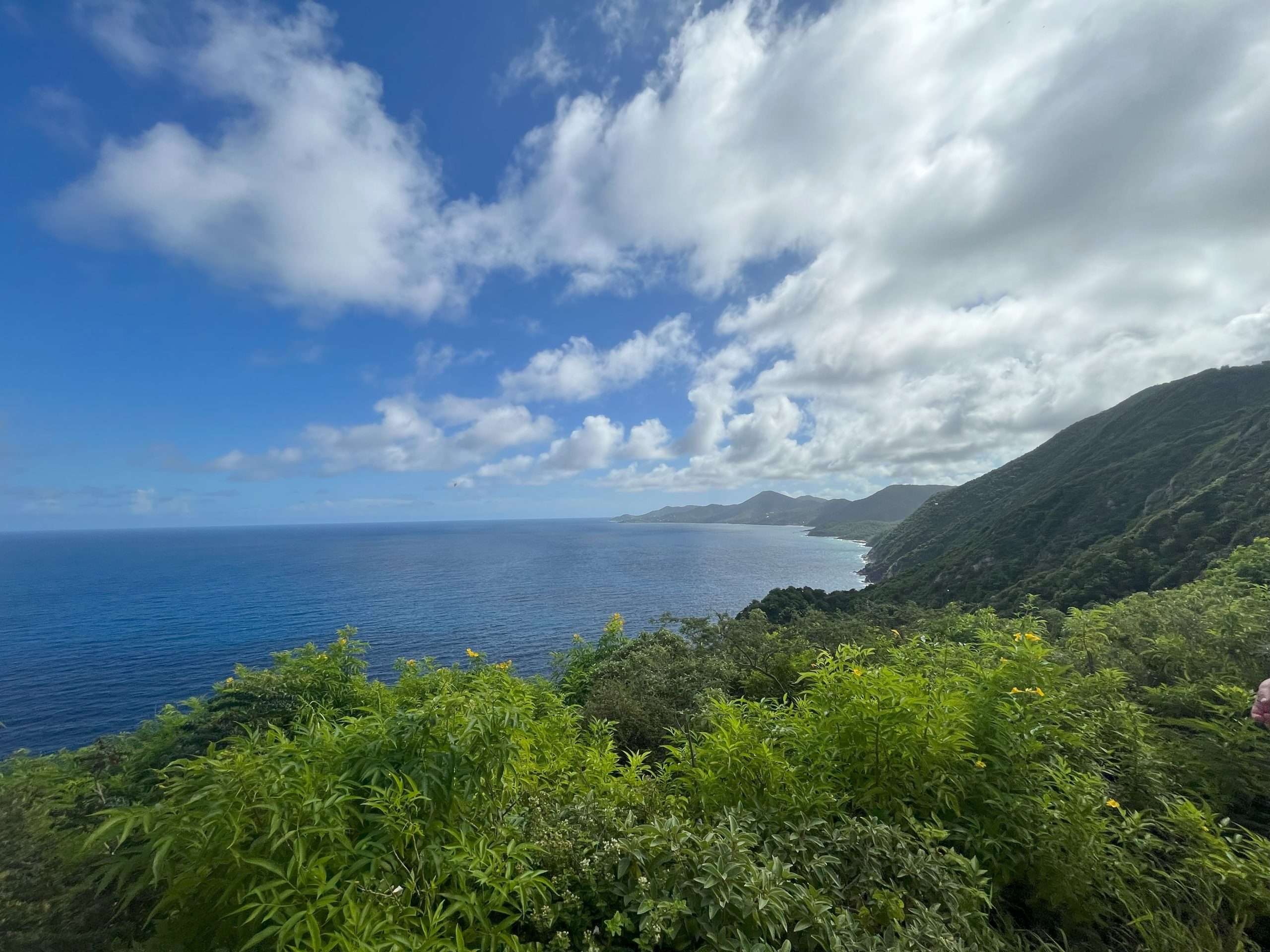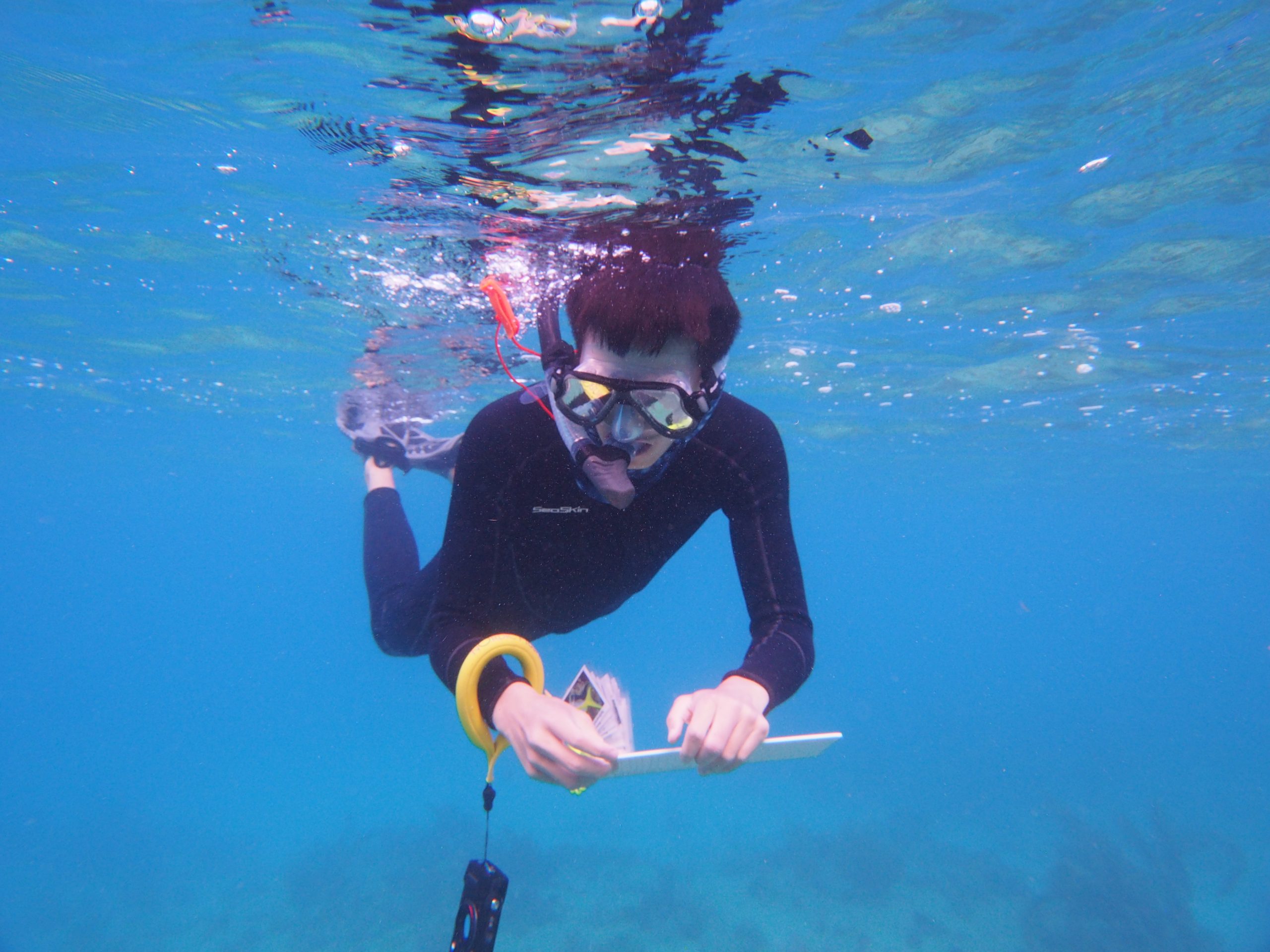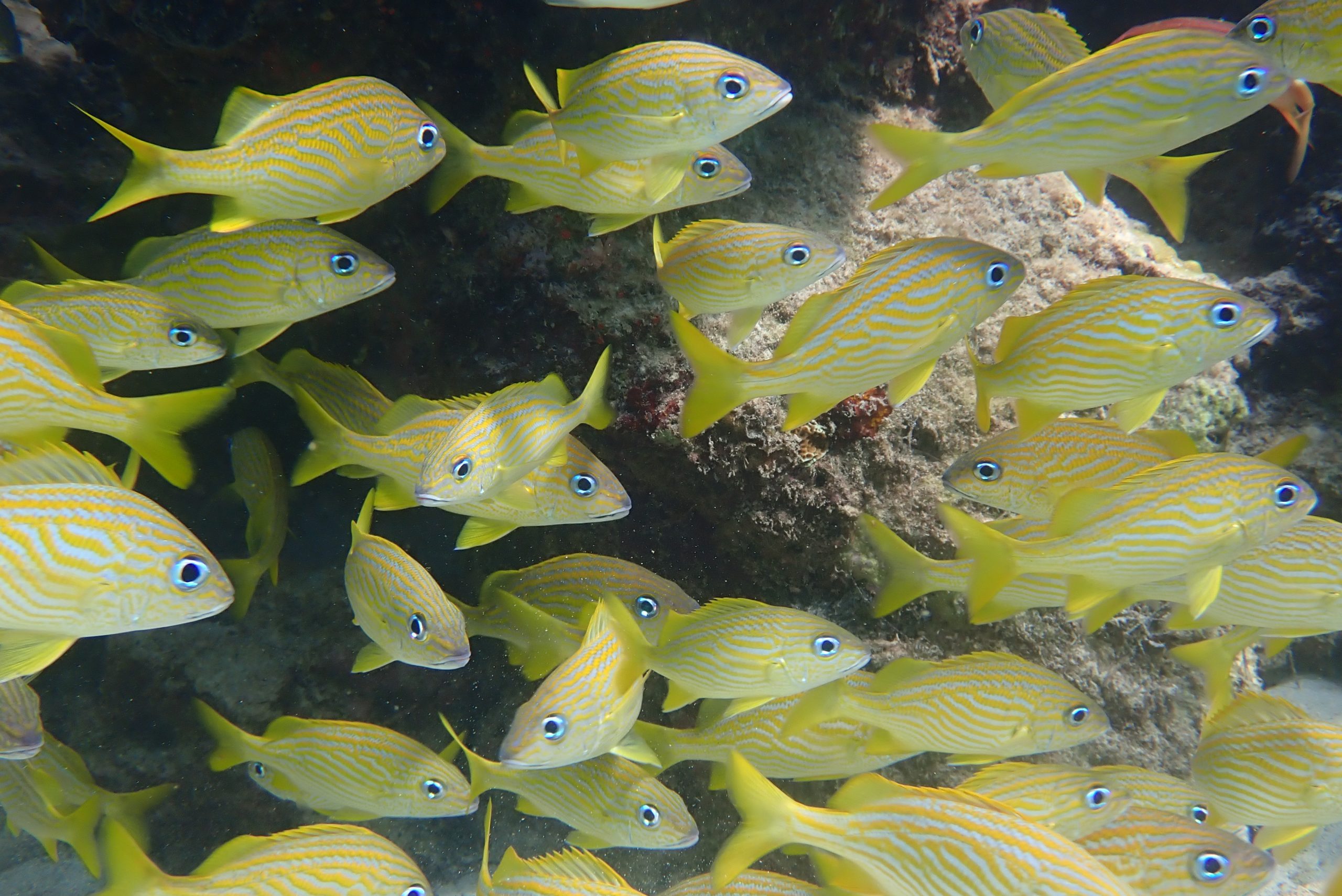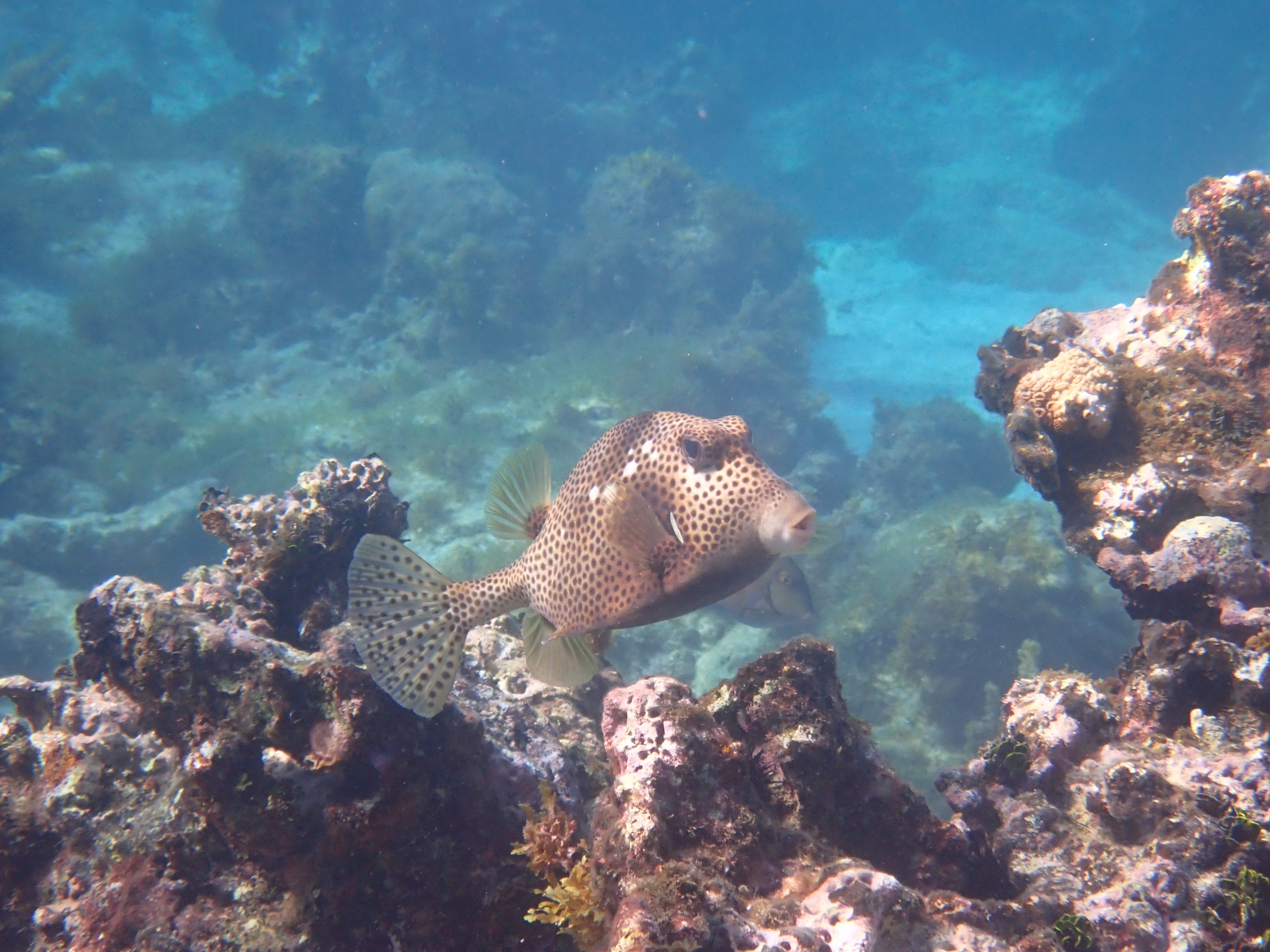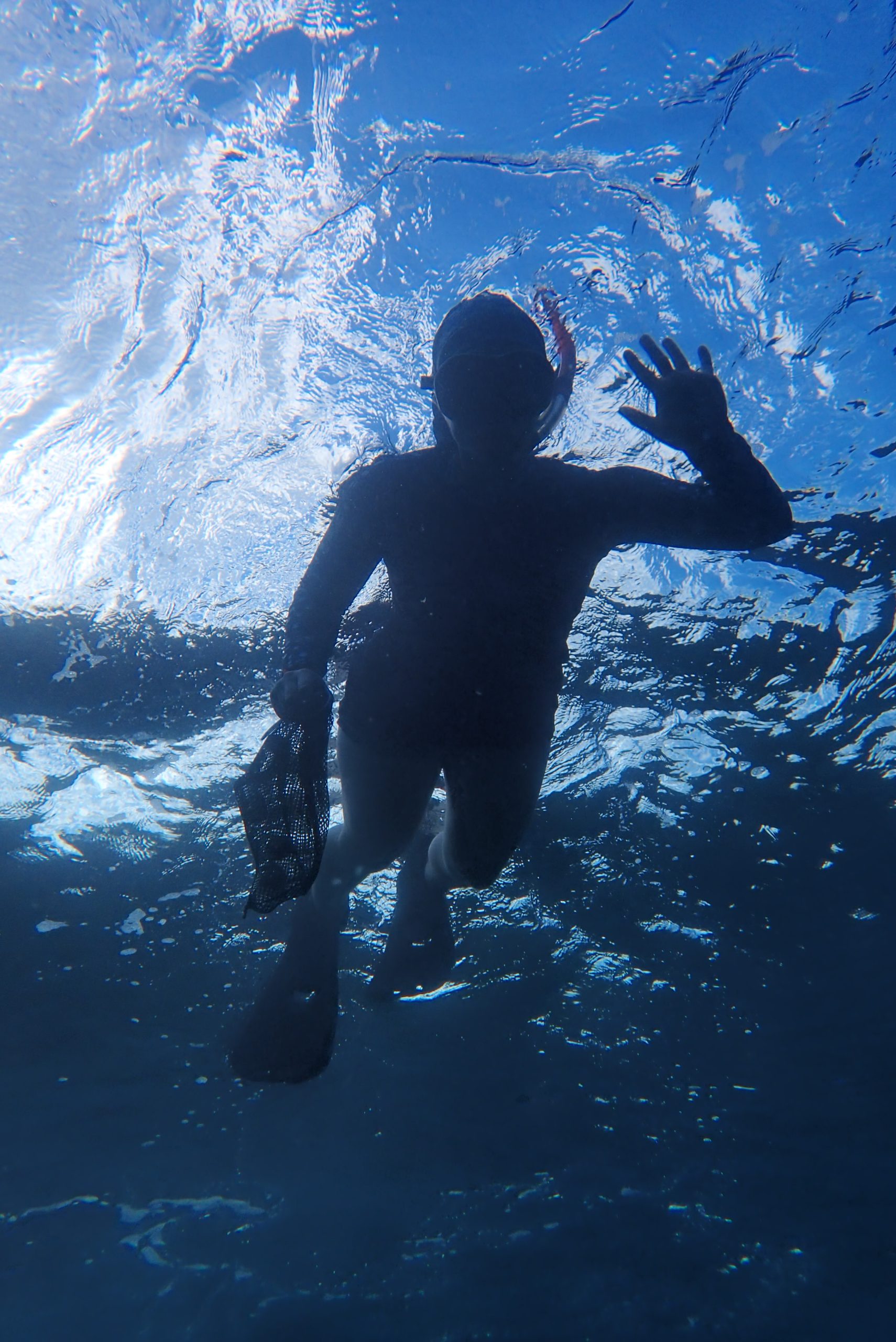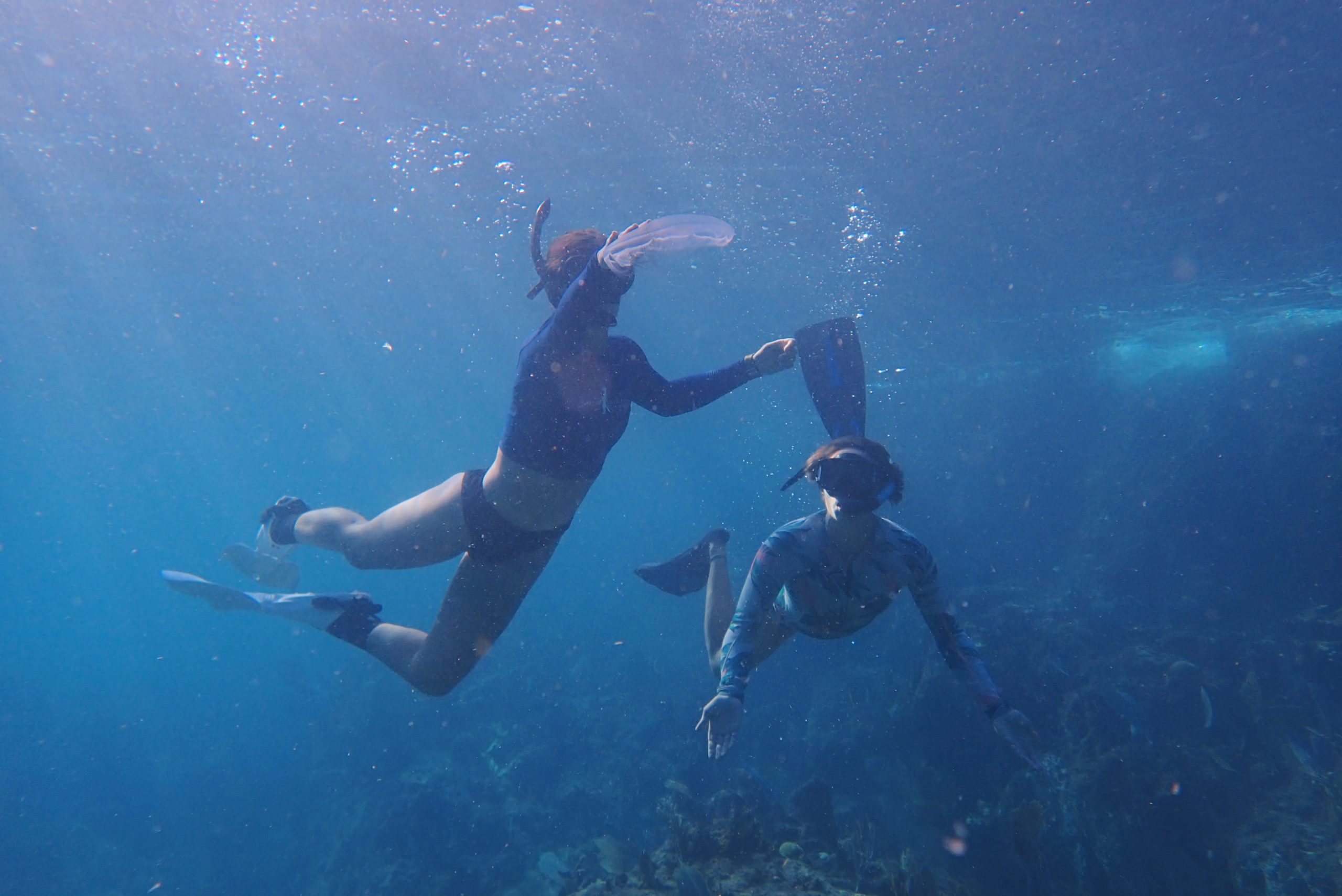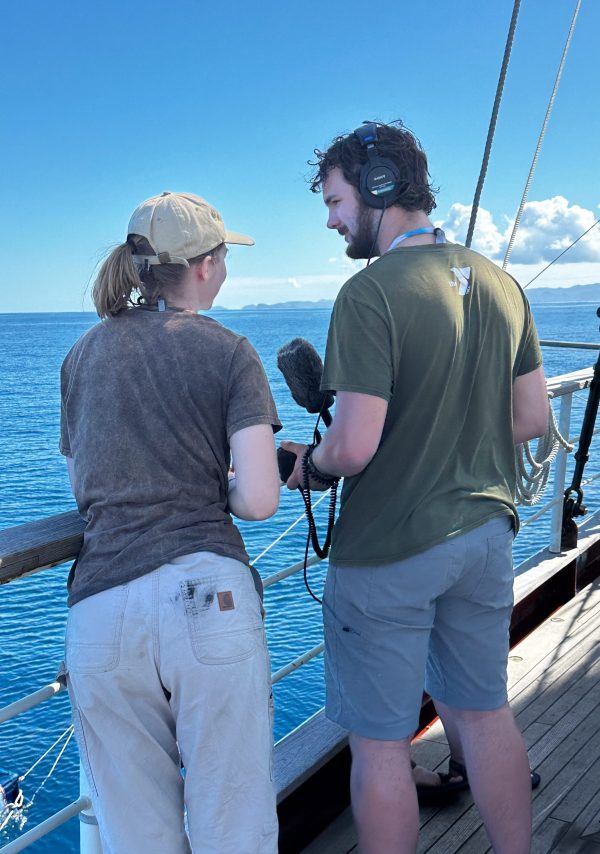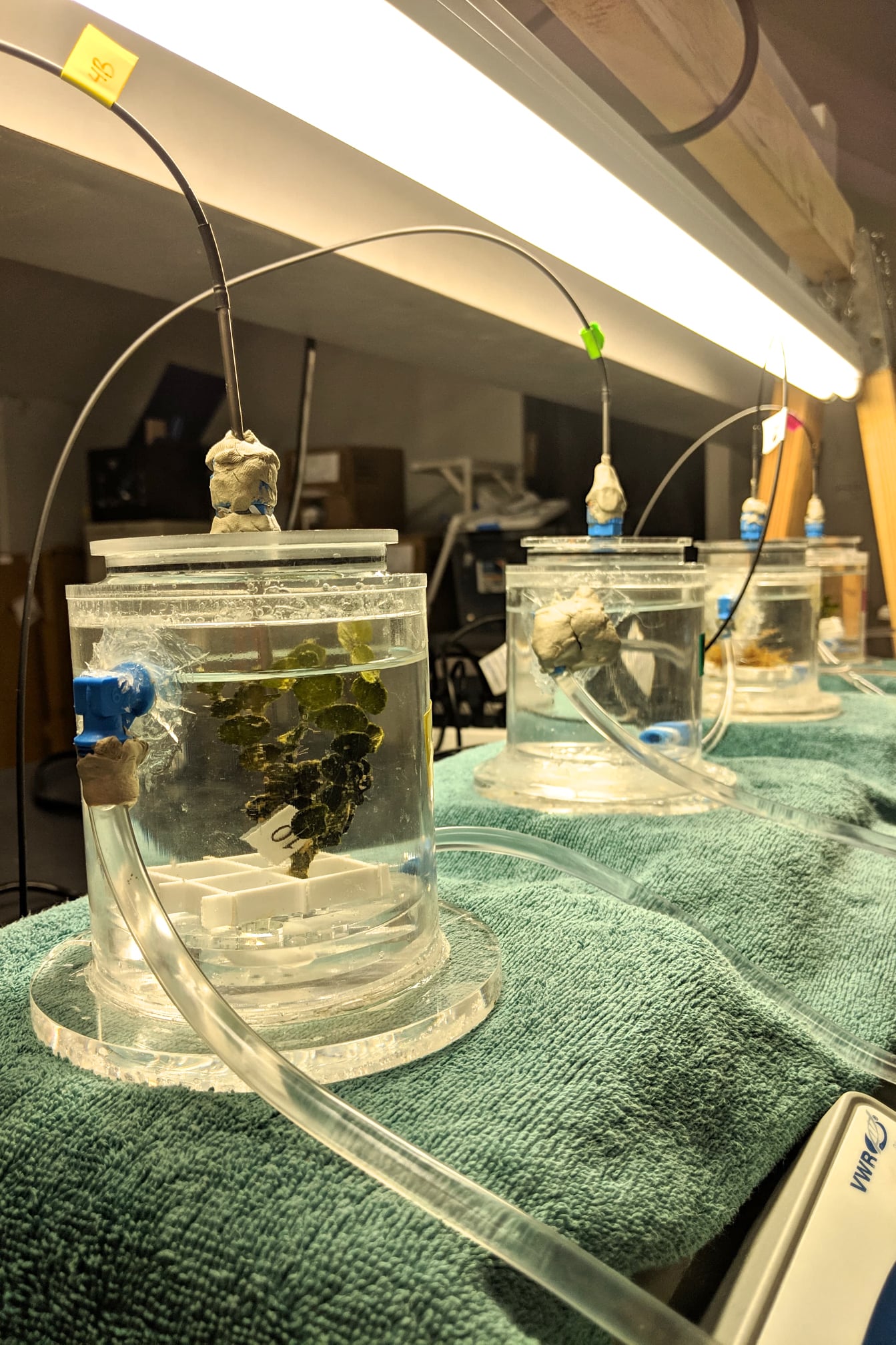Coral Reef Conservation: Caribbean
Healthy coral reefs are vital for thriving and successful island communities, and nowhere is this more evident than in the Caribbean.
Historically, coral reefs and their interconnected ecosystems have safeguarded islands, supported growing populations with food, and contributed to tourism and economic growth. However, numerous local and global threats, such as resource extraction, declining water quality, rising temperatures, and reduced pH levels, endanger the Caribbean region, making it one of the most impacted areas worldwide.
Students participating in this program can expect the following:
- Develop and refine snorkel-based coral reef and tropical marine ecology survey techniques
- Conduct research at field stations and in coastal communities
- Contribute to marine conservation and policy efforts
- Cultivate a comparative approach to understanding reef management strategies while honing science communication skills
Spring 2025:
February 3 – May 16, 2025
February 3 – March 16 on shore in Woods Hole, MA
March 23 – May 16 on shore in Caribbean locations
Locations:
U.S. Virgin Islands, Dominican Republic, Jamaica, and Grenada
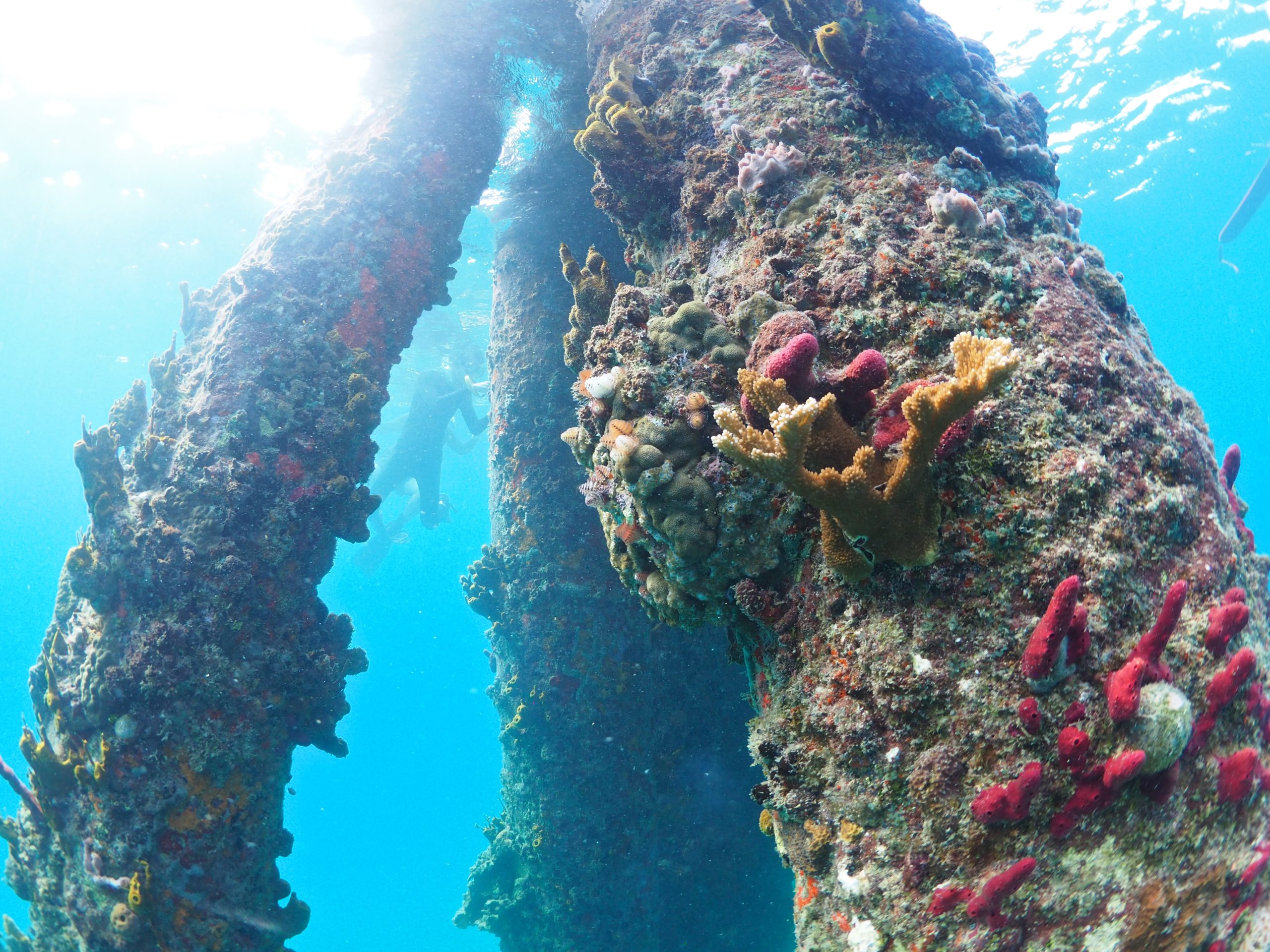
Program Description
An investigative science and policy program examining the impacts of human actions on Caribbean coral reef ecosystems, the importance of coral reefs to island communities, and the full range of reef management strategies.
Beginning with six weeks in Woods Hole, students develop background knowledge to understand history, science, and policy strategies involved in managing coral reefs. In the eight weeks of the remote shore component, students will engage in coral research in seaside scientific field stations and local communities as they develop and refine reef survey techniques and collect initial observations for comparative reef projects. Students will learn from and assist Caribbean Island partners from local, academic, and governmental agencies in developing or continuing protective measures for the marine environment on and around coral reefs, all while completing their comparative reef projects.
Coral Reef Conservation: Caribbean will examine how local, academic, governmental, and international organizations and businesses are working together to conserve and sustainably manage Caribbean coral reef ecosystems.
Academic Credit
This program carries 15 semester hour credits from Boston University for successful completion of the program.
Course Descriptions & Syllabi
Prereq: Admission to SEA. Sophomore standing or consent of instructor.
Employ methods and sources of historians and social scientists. Examine the role of human societies in coastal and open ocean environmental change. Issues include resource conservation, overfishing, pollution, invasive species, and climate change.
Prereq: Admission to SEA Semester. Junior standing or consent of instructor.
Seminar focusing on communication skills development for environmental scholars. Introduces the field of environmental communication, examines environmental attitudes and behaviors, and develops a toolkit of communications strategies. Includes projects in data visualization, multi-media presentation and digital storytelling.
Prereq: Admission to SEA Semester. Sophomore standing or consent of instructor.
Ocean ecosystem change in the anthropocene: warming, acidification, fisheries depletion, and pollution. Review principles of circulation, seawater chemistry, nutrient dynamics, and biological production to understand causes and consequences of change. Conduct field measurements for contribution to time-series datasets.
Directed Oceanographic Research (300-level, 4 credits)
Prereq: Admission to SEA Semester. Three lab science courses (one at the 300-level or higher) or consent of instructor.
Design and conduct original oceanographic research. Collect data and analyze samples. Compile results in peer-reviewed manuscript format and share during oral or poster presentation session. Emphasis on development of research skills and written/oral communication abilities.
Practical Oceanographic Research (200-level, 4 credits)
(Previously titled Practical Oceanography II)
Prereq: Admission to SEA Semester.
Introduction to oceanographic research. Design a collaborative, hypothesis-driven project following the scientific process. Collect original data. Conduct analysis and interpretation, then prepare a written report and oral presentation.
Syllabi for previous years are available for review. Detailed course content for future programs is dependent on cruise track, seasons, port stops, current events and faculty, and will be available closer to the program start date.

